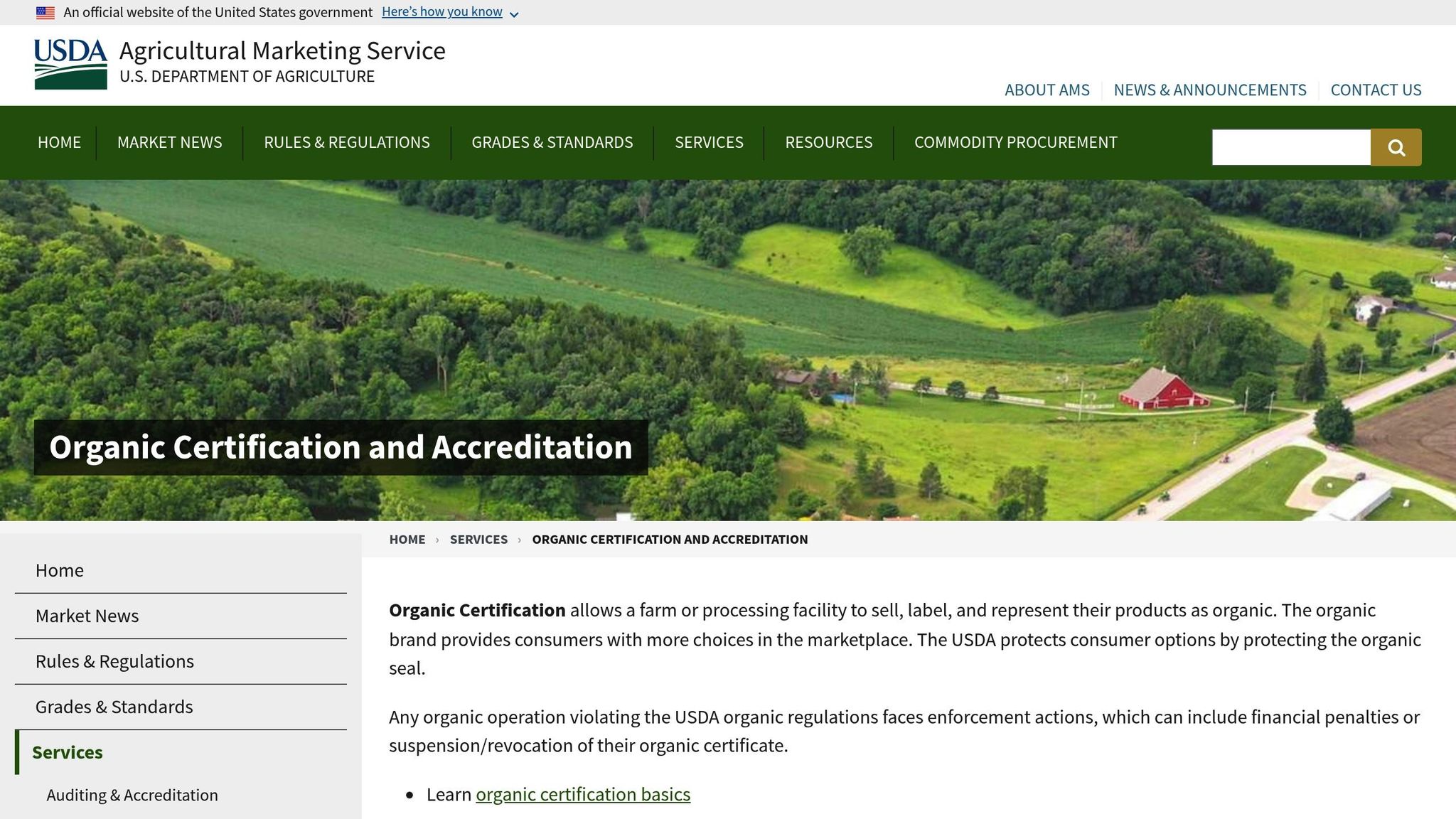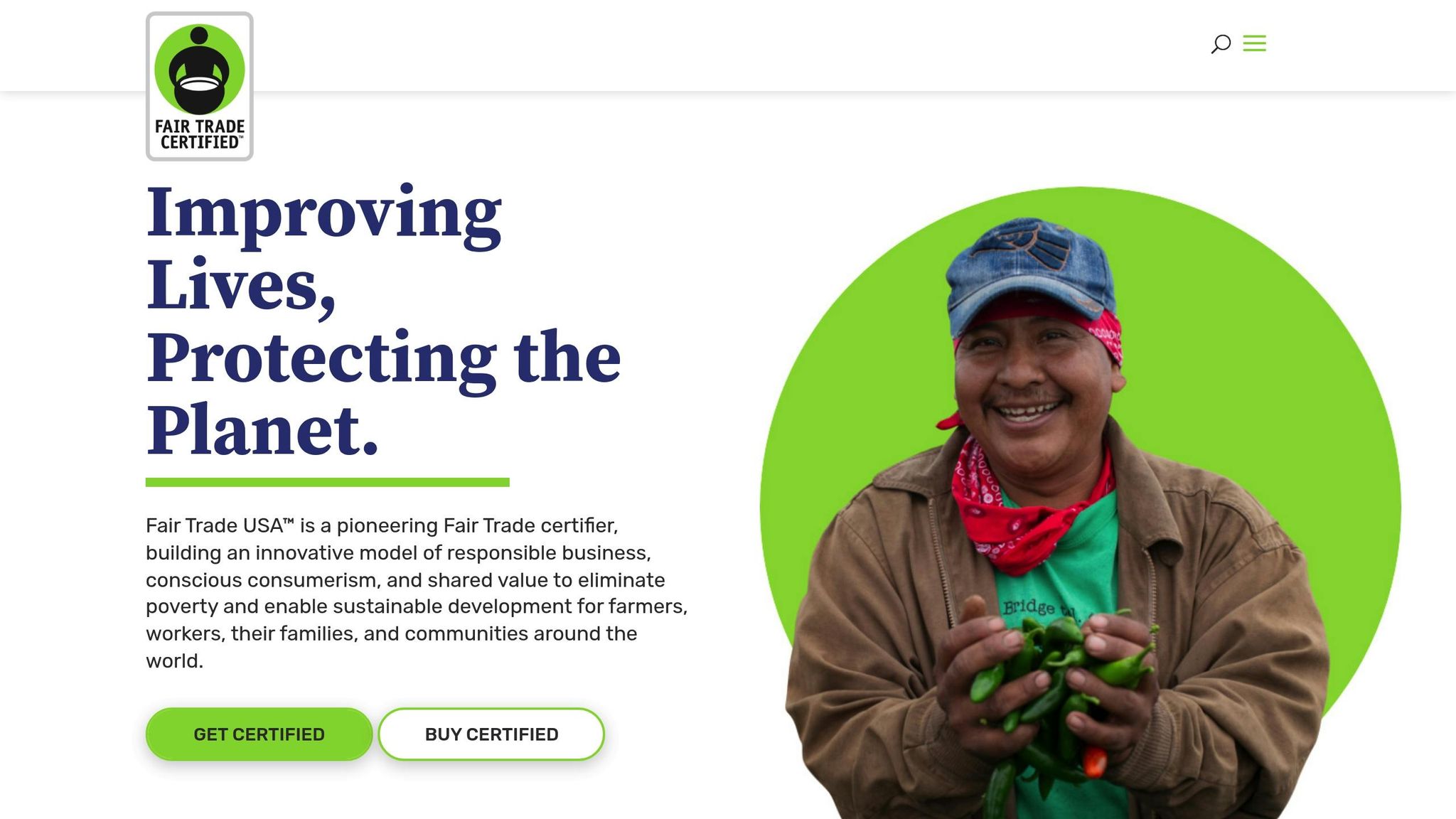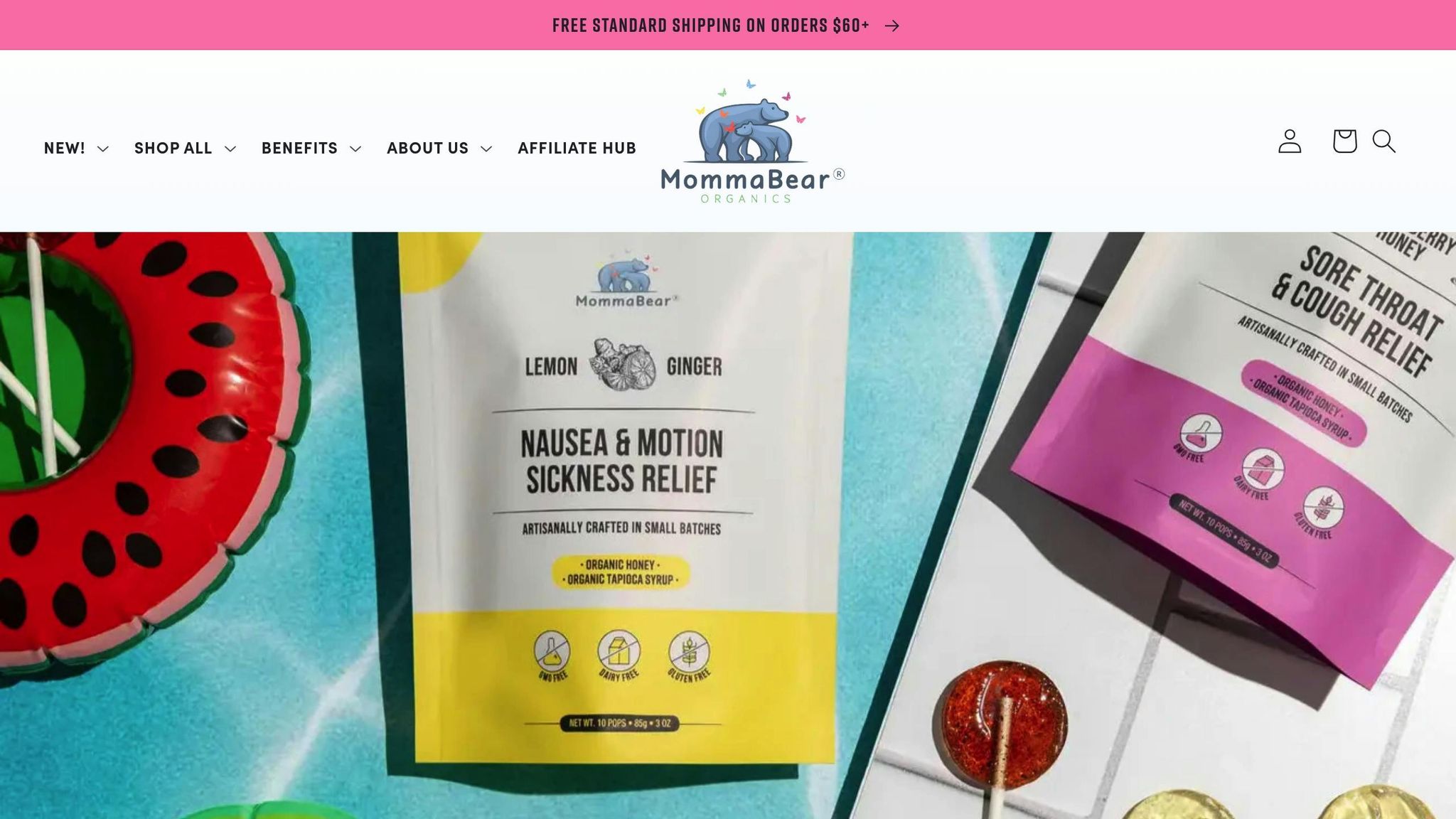So, 'ethical sourcing.' It sounds like a big, corporate term, but really it's just about caring where your stuff comes from. It's about making sure the people who grow our ingredients are treated right, that we're not wrecking the planet to get them, and that we're being honest about the whole process. It's kind of the whole reason I started this business. It just feels like the right way to do things, you know?
-
Why It Matters: I read somewhere that almost half of us now try to buy from brands that we feel good about, that share our values. And for a business, being ethical just makes sense. It builds trust and, honestly, it just feels less risky than working with suppliers you know nothing about.
-
Key Principles: The big three are: treating workers fairly, farming in a way that's good for the earth, and being open about where everything comes from.
-
Certifications: Those little logos like USDA Organic or Fair Trade? They're like a shortcut to figuring out if a company is walking the walk.
-
Challenges: It’s not always easy, especially for small businesses. Getting certified costs a lot of money. Sometimes, it feels like you have to choose between getting a fancy label and just… doing the right thing quietly.
-
Consumer Trends: Apparently, a huge number of people, something like 73%, said they'd pay more if they knew a product's story. That tells me this really matters to people.
-
Takeaway: This whole ethical sourcing thing isn't just a trend. It feels more like a shift in how we think about what we buy. It’s about building a business you can be proud of. So yeah, let's get into what that actually looks like for a company like MommaBear Organics.
Ethical and Sustainable Sourcing | Exclusive Lesson
Core Principles of Ethical Ingredient Sourcing
When I first started, I thought "organic" was enough. But the more I learned, the more I realized it's so much bigger than that. It’s a whole mindset. There are really three big ideas that guide every decision we make about our ingredients, from where we get them to who we get them from. It's about making sure our values are baked into every single lollipop.
Fair Labor and Community Support
Okay, so this one is huge for me. At the end of the day, ingredients are grown and harvested by people. Real people with families. So, ethical sourcing starts with them. It means making sure they get a fair wage, that they have a safe place to work, and that there’s no shady stuff going on, like child labor. It’s just basic human decency. When workers are paid fairly, it doesn’t just help them; it lifts up their whole town.
And it goes beyond just a paycheck. A lot of companies I admire also invest back into the communities where they source from—helping with schools, healthcare, that kind of thing. It's about being a good partner, not just a customer.
I used to think this was all just about doing the right thing, which it is, but I was surprised when I read a report that said it can actually save companies money in the long run. Something about reducing risks in the supply chain. It makes sense, I guess. When you treat people well, they do good work, and the whole system is just healthier.
Sustainability and Environmental Responsibility
This is the part that keeps me up at night sometimes. I mean, we’re borrowing this planet from our kids, right? So, sustainability in sourcing is all about not messing it up for them. It means working with farmers who get it—who use water wisely, who don’t spray a bunch of nasty pesticides, and who care about the soil and the local wildlife.
It’s about protecting the whole ecosystem so that these communities can keep farming for generations. And it seems like a lot of people feel the same way. I saw a poll that said two-thirds of shoppers are willing to pay more for sustainable brands. That gives me hope. It’s not just about keeping things clean; it’s also about being transparent, which is a whole other piece of the puzzle.
Traceability and Transparency
Honestly, this is just about trust. As a mom, I want to know what’s in the food I give my family. I want to know where it came from. So, it only makes sense that our customers would want the same thing from us. Traceability just means we can follow an ingredient all the way from the farm to the finished product. It’s how we can be sure about quality and that everyone along the way was treated right.
And people really, really care about this. I've read that something like 73% of us will pay more for something if the company is open about its sourcing. It's wild. The numbers are even higher for younger folks, like Millennials and Gen Z. They’re basically demanding to know the story behind what they buy.
There’s all this new tech now, like QR codes, that makes it easier to share that story. It’s not just about feeling good, either. A survey I saw from 2020 said 71% of people would pay a premium for brands that are totally transparent. So yeah, being open isn't just nice; it's becoming necessary.
Certifications and Standards for Ethical Ingredients
Alright, let's talk about all those little seals and logos you see on packaging. It can feel like alphabet soup sometimes, but they're basically third-party watchdogs that check if a company is actually doing what it says it's doing. With so many of us trying to shop with our values, these labels can be a helpful guide. Here’s a quick rundown of the ones I pay the most attention to.
USDA Organic and Non-GMO Project Verified

The USDA Organic seal is kind of the big one here in the U.S. It’s backed by the government, and the rules are super strict. It basically means no synthetic pesticides, herbicides, or fertilizers were used at any point. To get that seal, you have to keep insane records of everything, which is a pain, but it also means you can really trust it.
The Non-GMO Project Verified butterfly is another one you see a lot. It’s all about making sure there are no genetically modified ingredients in a product. It's actually the second most recognized food label after organic. I read that getting that butterfly on your package can boost sales by a lot, which just shows how much people want to avoid GMOs.
The Non-GMO Project Verified seal serves as a complement to organic certification, focusing specifically on avoiding genetically engineered ingredients. Since its inception in 2008, the program has certified over 60,000 products from more than 3,000 brands. This seal adheres to the Non-GMO Project Standard, which represents best practices for steering clear of genetically modified organisms. As the second most recognized food certification after USDA Organic, Non-GMO Project Verified products have been shown to boost sales by as much as 20% for certified brands.
Fair Trade and Other Ethical Labels

The Fair Trade certification is all about the people. It guarantees that workers got paid a fair price for their crops and often includes extra money that goes toward community projects, like building a school or a health clinic. I really love that. The Rainforest Alliance seal is a bit different; it’s more focused on environmental protection, but it doesn’t have the same minimum price guarantee for farmers.
Then there are other labels that are really cool too. MADE SAFE means a product is free from a whole list of known toxic chemicals. And the Leaping Bunny logo is the one to look for if you want to be sure a product is cruelty-free and not tested on animals.
Challenges for Small-Batch Producers
Okay, I’m not going to lie, this part is tough. While all those certifications are great, they are incredibly hard for a small business to get. The biggest hurdle is just the cost. I mean, getting Fair Trade certified can cost thousands of dollars upfront, and that’s before you even get to the annual audits and any upgrades you might need to make.
I read this quote from a guy at The Aspen Institute, Kyle Newell, and it really hit home. He said these certifications only apply to a tiny fraction of a percent of all the farms in the world because the costs are just too high for small farmers.
And then there’s the supply chain itself. If your ingredients pass through a bunch of different hands, it gets really complicated to track everything and make sure everyone is following the rules. Plus, a lot of shoppers haven’t heard of smaller certified brands, so stores are sometimes hesitant to carry them. The irony is that sometimes the most ethical, careful producers are the ones who can't afford the piece of paper to prove it. We can't afford it, but we do it anyway because it's the right thing to do.
sbb-itb-e1a023f
Practical Steps for Ethical Sourcing in Small-Batch Production
So if getting certified is a huge mountain to climb, what can a small business like mine actually do? It turns out, a lot. It’s less about expensive labels and more about being intentional, building good relationships, and just weaving these values into everything you do.
Building Relationships with Ethical Suppliers
This is really the heart of it all. It’s not just about placing an order; it’s about finding partners you trust. For me, it starts with being super clear about what I'm looking for—organic, non-GMO, you name it. That way, I can find suppliers who are already on the same page.
I spend a lot of time just talking to potential suppliers, asking them questions about how they operate, where their materials come from, and what they’re doing to be responsible. It's not about finding the cheapest option; it's about finding the right option.
Sourcing locally is a huge win whenever it's possible. It cuts down on shipping, which is better for the planet, and it feels good to support other local businesses. And once you find those amazing partners, it's smart to lock in longer-term contracts. It gives both of you some stability. It's a lot of work, but these relationships are the foundation of everything.
Adding Ethical Practices to Product Development
This part is about making sure your good intentions actually turn into action. It started with just writing down what our values are—fair labor, environmental care, all of it. That became our guide for everything.
It's also about being really open with our suppliers. We let them know that our ethical standards aren't optional, and we try to encourage them to be as transparent as possible. We’re all learning as we go, so we try to share what we know with our team, too.
Honestly, a lot of it is just logistics. We use inventory software to keep track of every single batch of ingredients, so we know exactly where it came from. And we’re always looking for small ways to be better. For example, instead of plastic bubble mailers, we use compostable ones. It’s a small thing, but it adds up. We’re definitely not perfect, but we’re always trying to improve.
Case Study: MommaBear Organics

So, this is how we try to put all of this into practice here. We make organic, non-GMO lollipops that are meant to help with everyday things like a kid’s car sickness or a scratchy throat. From the very beginning, I knew I wanted to create something I felt 100% good about giving to my own family.
That meant sourcing ingredients like organic raw wildflower honey. Honey is a perfect example—to get good, clean honey, you need happy bees and a healthy, pesticide-free environment for them to live in. So by choosing that ingredient, we're supporting farmers who maintain that kind of ecosystem. We also make sure everything is gluten-free and dairy-free, just to make them safe for as many families as possible. It's a lot of little choices that, hopefully, add up to something good.
The Future of Ethical Ingredient Sourcing
It really feels like things are changing. People are starting to care more about quality and health than just getting the absolute lowest price. It's a shift that you can feel, and it’s affecting everyone from small businesses like ours to the way families shop for groceries.
Key Takeaways for Ethical Sourcing
It seems like ethical sourcing is no longer just a "nice-to-have." I saw this stat that said sustainable products were responsible for more than half of the growth in spending over the last five years. That's huge. And on the business side, most companies are saying they'll drop suppliers who don't meet their sustainability goals.
The foundation is still the same—fair labor, sustainability, transparency. But now, technology is starting to play a bigger role. I've heard about things like AI and automation helping to make supply chains more transparent. For small producers, it can be hard to keep up, but I think our small size is also an advantage. We can be more flexible and have closer relationships with our farmers. It's all moving toward more natural ingredients and even personalized nutrition. With everyone so focused on health these days, it just makes sense.
Building Consumer Trust Through Transparency
At the end of the day, it all comes down to trust. And you can't have trust without transparency. It's kind of amazing to see the numbers—86% of people say transparency is a big deal for them, and 73% would pay more for products that are open about where their ingredients come from.
An expert, Anshu Gupta, put it really well. She said, "Today's consumers, especially in health and wellness, value transparency in ingredient sourcing and handling." That's so true.
Younger generations are really driving this. We can build that trust in simple ways, like putting QR codes on our packaging that link to more info, or just sharing behind-the-scenes stuff on social media. It's not a gimmick; it’s just being open and honest. With almost everyone believing that businesses should be doing more for society and the planet, it feels like this is the only way forward.
MommaBear Organics: A Model for Ethical Sourcing
Look, we're a small company just trying to do our best. We try to be a good example of how you can source ethically without having to be a giant corporation. By focusing on simple, organic, non-GMO ingredients like our raw wildflower honey, we can make something that's high-quality but still affordable for families.
Our whole philosophy is about clean, simple, natural remedies. And by staying small-batch, we can keep a really close eye on quality and maintain those personal relationships with our suppliers. That's something that gets a lot harder as you get bigger.
As more and more people look for brands they can trust, we hope we're well-positioned. We’re basically betting on the idea that people care about these things. I read that people are willing to spend almost 10% more on products that are made sustainably, and that's the kind of support that allows small, value-driven businesses like ours to exist.
FAQs
What are some ways small-batch producers can manage the high costs of ethical ingredient certifications?
Oh, this is a tough one, and something we think about all the time. Those certification fees are no joke. One thing I’ve seen other small businesses do is team up. They form a little co-op and split the certification costs, which makes it way more affordable.
Another way is to just build really strong, direct relationships with your farmers and suppliers. When you cut out the middlemen, you can sometimes negotiate better prices, and you have a much clearer picture of their practices, even without a formal certificate. I think, in the end, investing in trust with your customers pays off. If they believe in what you’re doing, they’ll support you, and that can help cover the costs over time.
How can businesses ensure their supply chains are transparent and ethically sourced?
The first step is just to decide what your values are and write them down. Like, for us, it's things like fair labor and environmental responsibility. Then you have to talk about it, constantly, with your suppliers so everyone knows what’s expected.
Then there’s the tracking part. We use systems to follow our ingredients from the moment they arrive to the final product. Something as simple as mapping out your supply chain and knowing who all the players are can make a huge difference. It helps you spot potential problems and just be more accountable. It’s all about showing your customers you’re truly committed to doing things the right way.
Why is it important for businesses to understand consumers' willingness to pay more for ethically sourced products?
It’s so important because it basically validates the entire business model. Knowing that people are willing to pay a little more—I think the number is around 10%—for something made sustainably gives you the confidence to invest in better ingredients and better practices, even if they cost more upfront.
It shows that people aren't just buying a product; they're buying into a set of values. And when people see that you care about the same things they do, like sustainable packaging or fair wages, they become more than just customers. They become loyal supporters. In a crowded market, that's everything.
Related posts
- Top 7 Herbs for Stress Relief in Candy Form
- How Organic Lollipops Help Digestive Health
- How to Choose Allergy-Free Candy for Your Family
- How Plant-Based Lollipops Support Everyday Wellness










